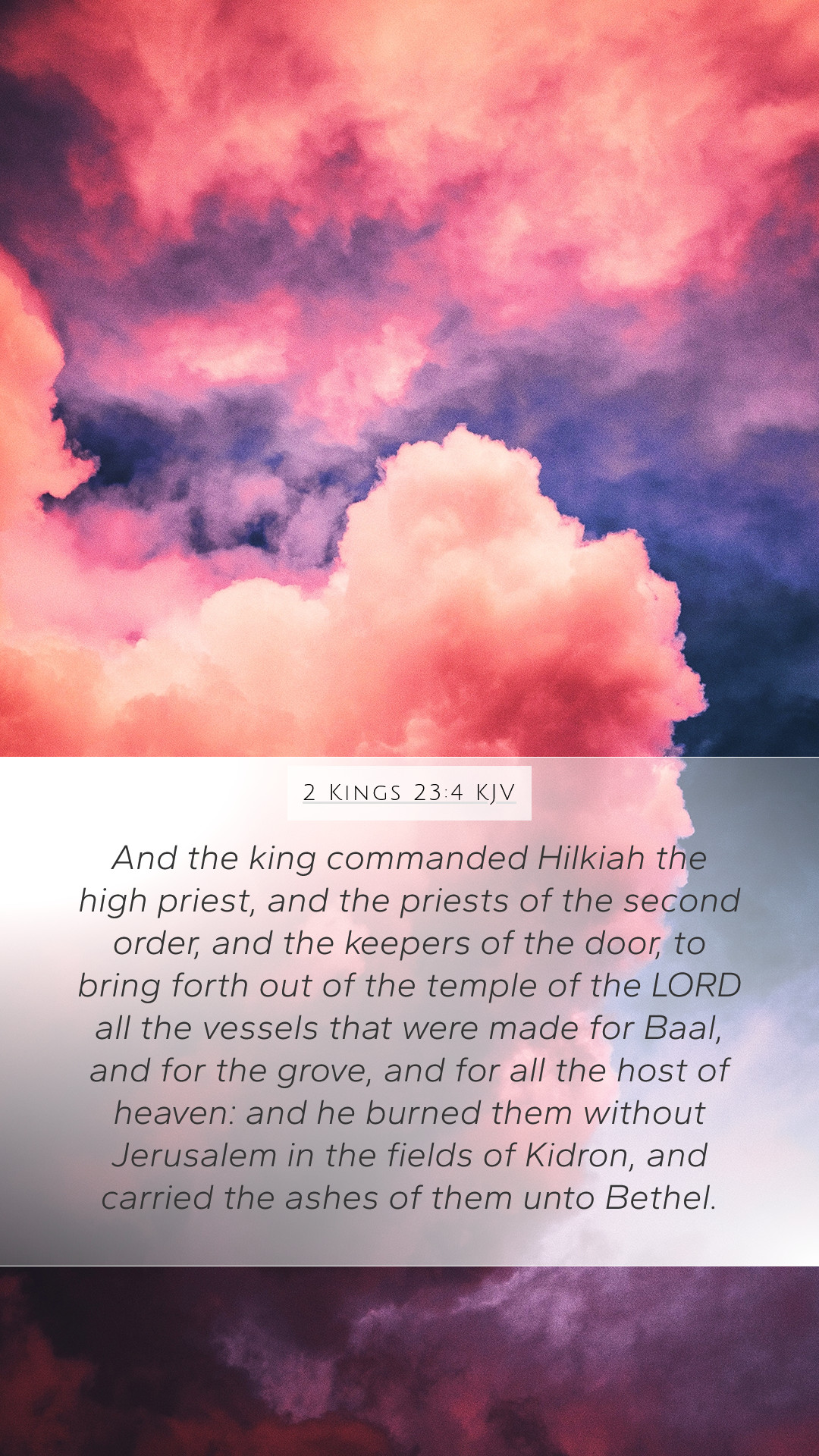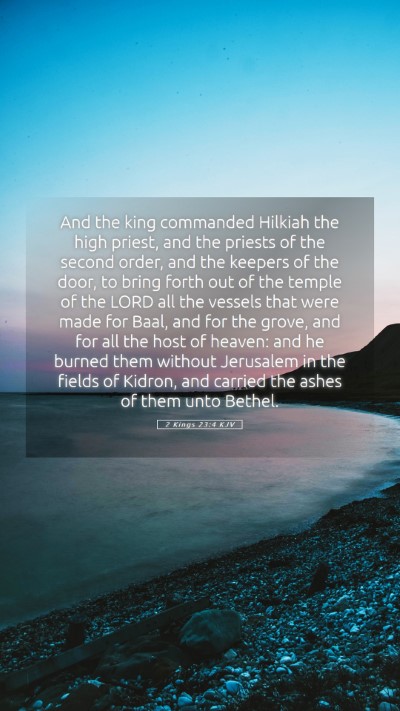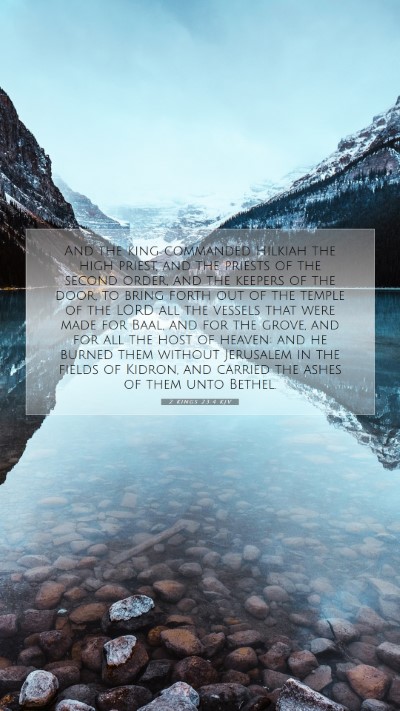Understanding 2 Kings 23:4
Bible Verse: 2 Kings 23:4 - "And the king commanded Hilkiah the high priest and the priests of the second order, and the keepers of the door, to bring forth out of the temple of the Lord all the vessels that were made for Baal, and for the grove, and for all the host of heaven; and he burned them without Jerusalem in the fields of Kidron, and carried the ashes of them unto Bethel."
Overview of the Verse
This verse depicts a pivotal moment in the reign of King Josiah of Judah, marking a significant reformation aimed at restoring the worship of the Lord and eradicating idolatrous practices. The actions taken by Josiah reflect a deeper spiritual revival and a return to the laws of God as prescribed in the Scriptures.
Commentary and Interpretation
This verse can be explored through insights from respected public domain commentaries which provide valuable context and interpretation:
-
Matthew Henry's Commentary:
Matthew Henry emphasizes the urgency of Josiah's reforms. He notes how the idolatrous practices had completely infiltrated the worship of Yahweh, corrupting the hearts of the people. Josiah’s command to remove all vessels associated with Baal highlights the seriousness with which true worship must be approached, as it reflects the need for purity in spiritual practices. The act of burning the vessels is significant; it symbolizes the complete and utter rejection of idolatry, illustrating a commitment to God’s sovereignty.
-
Albert Barnes' Notes:
Albert Barnes approaches the verse from a historical perspective, contrasting the reforms of Josiah with previous kings who had allowed idolatry to thrive. He points out that the orders given to the high priest reveal the organized effort behind the reform, which was not merely symbolic but a tangible action to cleanse the temple and the nation. Barnes emphasizes the importance of eradicating not just the idols, but also their remnants in society, reinforcing the need for spiritual awakening and renewal.
-
Adam Clarke's Commentary:
Adam Clarke offers valuable insights into the cultural and religious implications of this verse. He indicates that the 'grove' mentioned refers to sacred wooden poles or Asherah worship, which was deeply entwined in Canaanite religion. His analysis explains how removing these objects not only had religious significance but was a necessary societal reform to bring the nation back in line with God’s covenant. Clarke also remarks on the geographical significance of Kidron, noting it as a place symbolic of separation between the sacred and the profane.
Thematic Significance
Across the commentaries, a few core themes emerge from the interpretation of 2 Kings 23:4:
- Restoration of True Worship: Josiah's actions signify a pursuit for genuine worship of Yahweh, emphasizing cleansing from corrupt practices.
- Judgment Against Idolatry: The destruction of idols serves as a stark warning against the dangers of syncretism and the importance of fidelity to the true God.
- Leadership Responsibility: The clarity in Josiah's orders reflects a model for leaders within faith communities to take decisive actions against practices contrary to biblical teachings.
Application for Today's Believer
The lessons drawn from this verse extend far beyond the historical context of ancient Israel. For contemporary believers, the call to purity in worship and the rejection of contemporary idols—be it materialism, popularity, or even certain cultural practices—remains pertinent.
Cross References
- 2 Kings 23:5 - Speaks of the removal of priests who did not follow the Lord, further emphasizing Josiah's reform.
- Deuteronomy 12:2-3 - Details the command to destroy places of idolatry, aligning with Josiah's actions.
- 2 Chronicles 34:3-7 - Provides additional context of Josiah's reforms, highlighting the revival he brought.
Conclusion
In summary, 2 Kings 23:4 acts as a robust reminder of the importance of maintaining a pure and dedicated worship to God. The insights from various commentators illuminate the historical, spiritual, and practical implications of this verse, inviting a reflective and actionable approach to the worship practices in the lives of modern believers.
Further Study and Engagement
For those interested in going deeper, consider participating in Bible study groups or exploring online Bible study resources. Utilizing Bible study tools and guides can enhance understanding as you engage with Scripture and seek to apply it to daily living.


